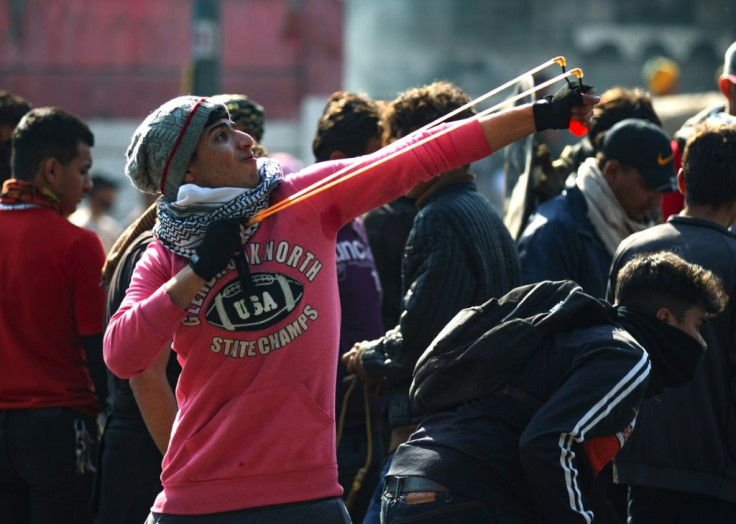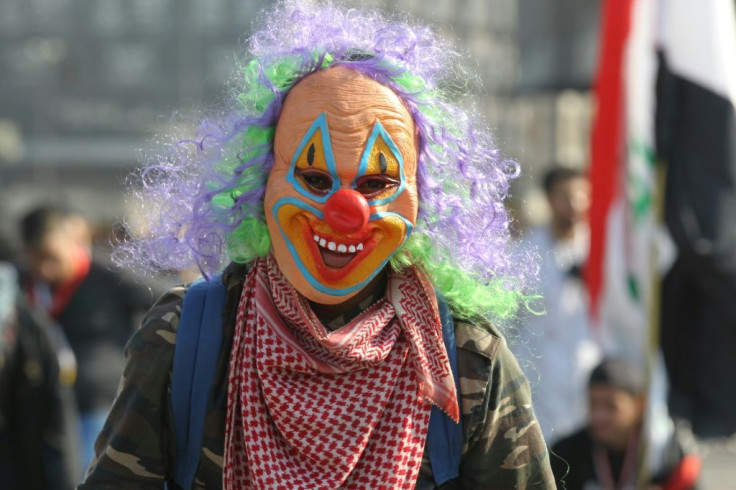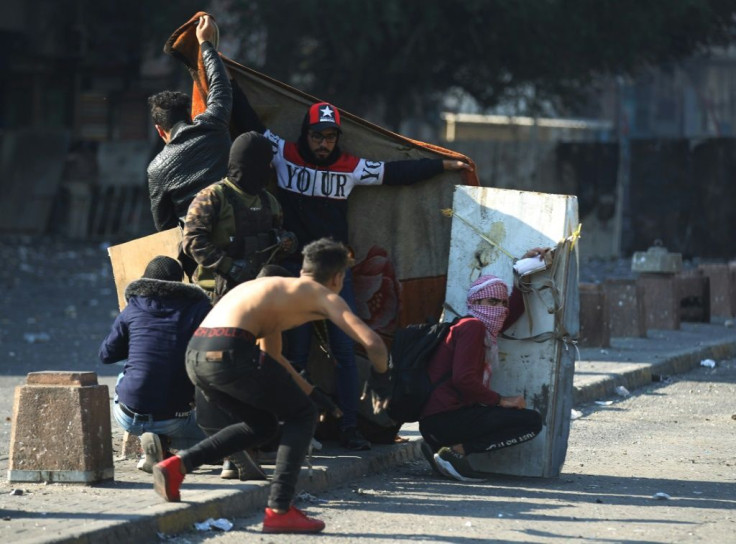Stalemate Over Iraq PM Pick As Deadline Looms

A deadline set by Iraq's president for parliament to name a new premier was set to expire Saturday amid renewed pressure from the street after influential cleric Moqtada Sadr called for fresh protests.
Baghdad and the mainly Shiite south have been gripped by four months of anti-government rallies demanding snap elections, a politically independent prime minister and accountability for corruption and protest-related violence.
Faced with pressure from the street and from the Shiite religious leadership, Prime Minister Adel Abdel Mahdi resigned in December after just over a year in office.
But rival parties have failed to agree on a successor, stoking fears of a spiral into chaos as the country tries to navigate the protests and rising tensions between its two main allies, Iran and the United States.
In a bid to restore some stability, President Barham Saleh sent a letter to the deeply divided parliament this week saying he would nominate a premier unilaterally if lawmakers did not do so by Saturday.
The ultimatum sent parties into crisis talks but on Saturday, there was still no clear consensus.
"There's no agreement, no way to end the rivalries so far," a top government official told AFP on condition of anonymity.
"And if Saleh names someone on his own, there will be a crisis because that shouldn't be his role."
In a normal situation, parliament's largest bloc must nominate a prime minister within 15 days of an election, and the candidate is then tasked by the president with forming a government within one month.
But Iraq is in an unprecedented situation: no premier has ever resigned and the constitution makes no provision for how to handle such a move.

Since a US-led invasion toppled longtime dictator Saddam Hussein in 2003, major decisions have been made by consensus among the country's Shiite, Sunni and Kurdish parties.
Any contender for prime minister needs a green light from a dizzying array of interests -- the divided political class, the Shiite religious leadership, neighbouring Iran, its rival the United States and now the protesters.
One of the most influential voices in Iraqi politics in recent years has been Shiite cleric Moqtada Sadr, who led the anti-US Mehdi Army militia after the invasion and has since refashioned himself as a populist politician.

He controls parliament's largest bloc and many ministerial posts.
But he backed the protests when they erupted in October and his supporters were widely recognised as the best organised demonstrators.
A week ago, he appeared to rethink his support for the protest movement and his hard-core backers dismantled their tents in protest camps across the country.
Within hours of Sadr's withdrawal, riot police moved into burn or tear down protest camps and around a dozen demonstrators were killed, medics and police said.
But on Friday he seemed to flip again, calling for his backers "to renew the peaceful, reformist revolution".
They were back in the streets on Saturday, setting up tents and mingling with politically unaligned protesters who had held their ground when the Sadrists pulled out.
The violence dropped markedly, too.
"Since the Sadrists came back, we've implemented a sort of ceasefire and haven't fired tear gas at protesters," a member of the security forces told AFP near Tahrir Square, the main protest camp in the capital.
More than 480 people have died in protest-related violence since October, the great majority of them demonstrators killed by live rounds or military-grade tear gas canisters.
Protesters in Tahrir Square have already publicly rejected a number of names floated for prime minister, including former communications minister Mohammed Tawfiq Allawi and current intelligence chief Mustafa Kazemi.
Their portraits, marked with large "X"s over their faces, were hanging in the square along with a big blue poster calling for the United Nations to intervene in the crisis.
The top UN official in Iraq Jeanine Hennis-Plasschaert has pushed throughout the week for progress, tweeting on Friday that solutions were "urgently needed" to "break the political deadlock".
And the country's top Shiite cleric Grand Ayatollah Ali Sistani piled on the pressure on Friday, saying Iraq must "accelerate the formation of a new government".
"It is imperative to speed up holding early elections so that the people will have their say," he said.
© Copyright AFP 2024. All rights reserved.





















